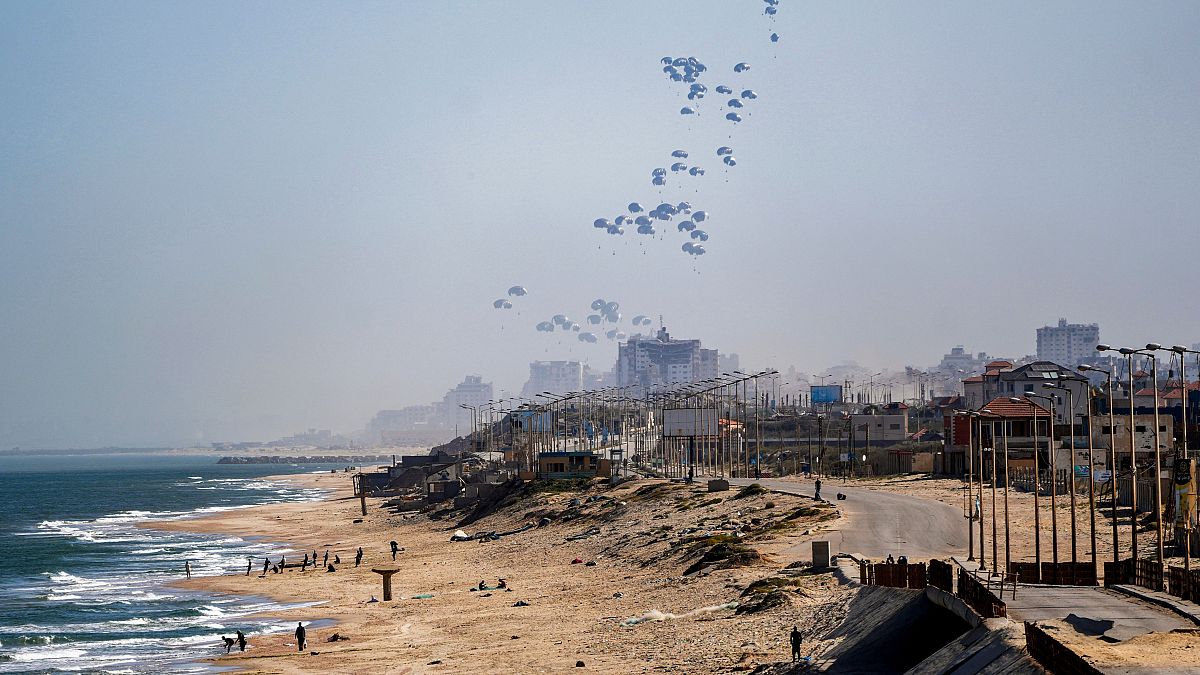Updates from Israel's offensive in Gaza.
The International Rescue Committee (IRC) has said the killing of international charity workers this week by an Israeli air strike highlights that Gaza is the "most lethal place in the world to be an aid worker".
The Israeli attack on a World Central Kitchen convoy delivering food in Gaza killed at least seven people on Monday. Among them were an American-Canadian dual citizen and citizens of Australia, Poland and the UK.
"There is an uncomfortable reality that until Monday, to the best of my knowledge, all of the aid workers killed (to that point) have been Palestinians," IRC Senior Vice President of International Programs Ciarán Donnelly told the Associated Press.
"We have seen a significant increase in global attention to this issue, to the safety of humanitarian workers in large part because of the nationalities of those who were killed on Monday."
Before the strike, Donnelly said 196 humanitarian workers and 350 healthcare workers had been killed in the Hamas war.
While Donnelly would not speak about the motivations of the Israel Defence Forces who carried out the strikes, he did say the Gaza war "is not being conducted in ways that respect the protections provided under international humanitarian law."
World governments condemn aid convoy bombing
Israel has acknowledged carrying out the attack on the convoy, and says it has launched an independent investigation into the decision behind it. However, its officials' expressions of regret at the aid workers' killing has not calmed international outrage at the incident.
US President Joe Biden said he was "outraged and heartbroken" by the strike, demanded accountability for the killings, and castigated Israel for failing to minimise civilian casualties and suffering.
"The United States has repeatedly urged Israel to deconflict their military operations against Hamas with humanitarian operations, in order to avoid civilian casualties," he said.
With three British nationals among the dead, UK Foreign Secretary David Cameron said on X that he had told his Israeli counterpart that the aid workers’ deaths “are completely unacceptable.”
UK Development Minister Andrew Mitchell said he “requested a quick and transparent investigation, shared with the international community, and full accountability.”
Mitchell added: “We need to see an immediate humanitarian pause, to get aid in and the hostages out, then progress towards a sustainable cease-fire.”
Spain's prime minister, Pedro Sanchez, said Israel's explanation so far was “absolutely unacceptable and insufficient” and called for "much more detailed clarification of what happened.” His government plans to officially recognise a Palestinian state this summer.
Houthi rebels "running low on weapons"
A slowdown in attacks in the Red Sea indicates that Houthi rebels in Yemen may be running through their supplies of drone swarms and anti-ship ballistic missiles, the top US Air Force commander for the Middle East said on Wednesday.
Lieutenant General Alexus Grynkewich said that the persistent American retaliatory strikes on the Iran-backed militia group have “certainly affected their behaviour" and that "their pace of operations is not what it was.”
The Houthis have been conducting near daily attacks on commercial and military ships in the Red Sea and Gulf of Aden, launching drones and missiles from rebel-held areas of Yemen.
The attacks are often unsuccessful but at times have struck the ships. They have disrupted a crucial shipping route not only for cargo, but also for aid to countries including conflict-stricken Sudan.
